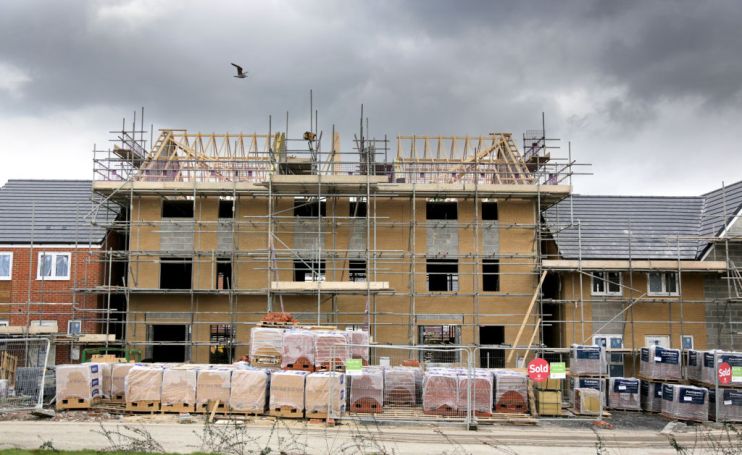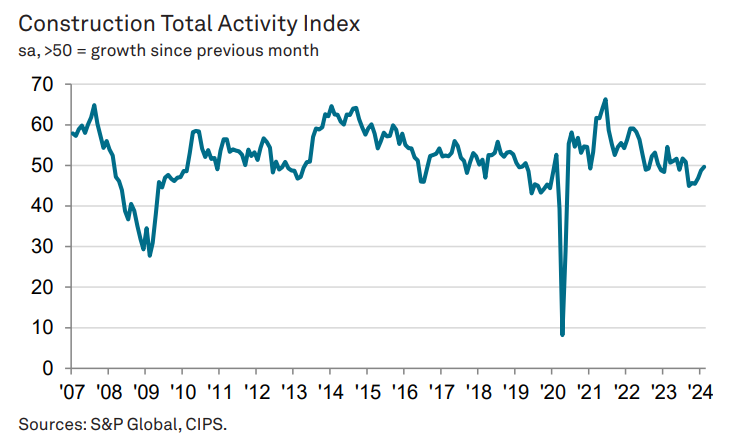Hopes of lower interest rates fuel construction sector optimism amid housebuilding resurgence

Signs of a recovery in the housebuilding sector helped push activity in the construction sector to its highest level since August last year, a new survey shows.
S&P’s purchasing managers’ index (PMI) for the construction sector rose to 49.7, up from 48.8 and only marginally below the 50 no-change mark.
The improvement was entirely due to a much slower fall in housebuilding, where activity jumped to 49.8 in February from 44.2 in January. This put it at its highest level since November 2022.
Survey respondents said that improving financial conditions had contributed to a stabilisation of residential construction work.

Higher interest rates have hammered the sector over the past couple of years, but hopes that rates will start falling later this year have fuelled optimism that 2024 will be a brighter year for the sector.
Interest rates currently stand at a post-financial crisis high of 5.25 per cent. Markets expect the Bank of England to start cutting rates this summer.
Matthew Pointon, senior property economist at Capital Economics said that falling interest rates should allow for a “gradual rise” in construction across both the commercial and housing sectors.
Optimism across the construction sector as a whole rose to its highest level since January 2022 citing hopes of a “sustained upturn” in consumer demand.
“This was the best performance for the construction sector since August 2023 and the forward-looking survey indicators provide encouragement that business conditions could improve in the coming months,” Tim Moore, economics director at S&P Global Market Intelligence
Despite increasing confidence, employment actually fell for the second consecutive month.
“A protracted downturn in activity has made construction companies cautious about their employment numbers,” Moore said.
Cost pressures also increased in February, albeit only modestly. Firms struggled with higher wages and higher costs for raw materials, while some noted a “negative impact” due to disruption in the Red Sea.